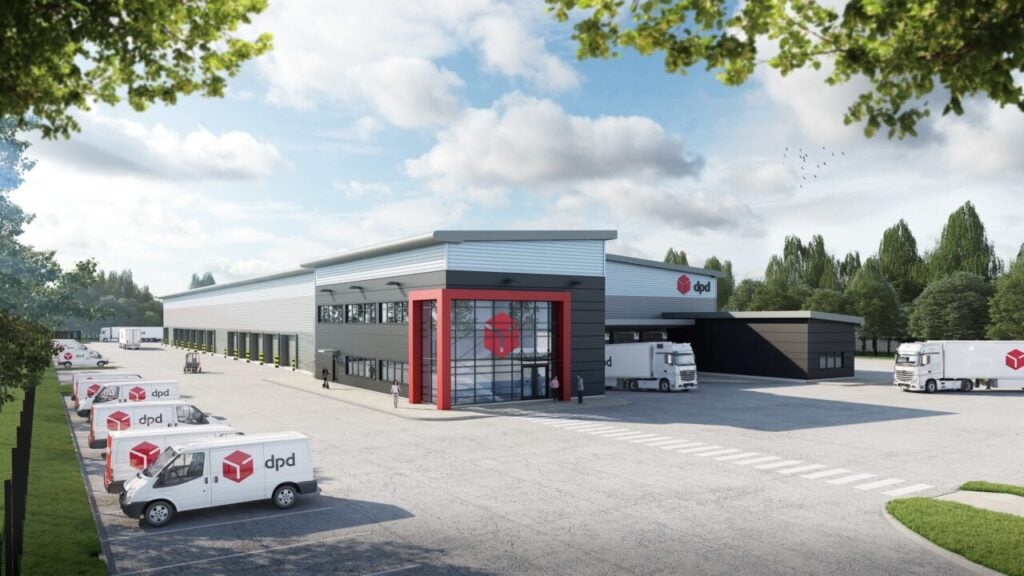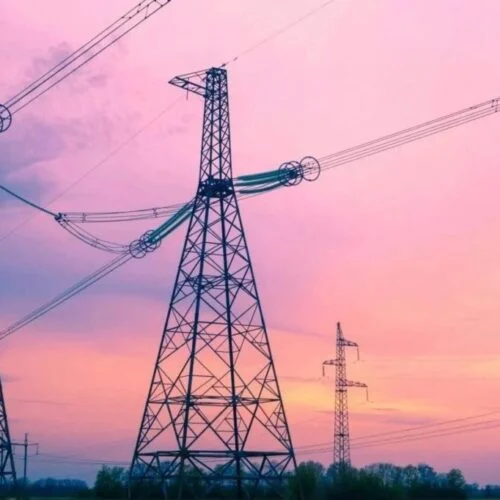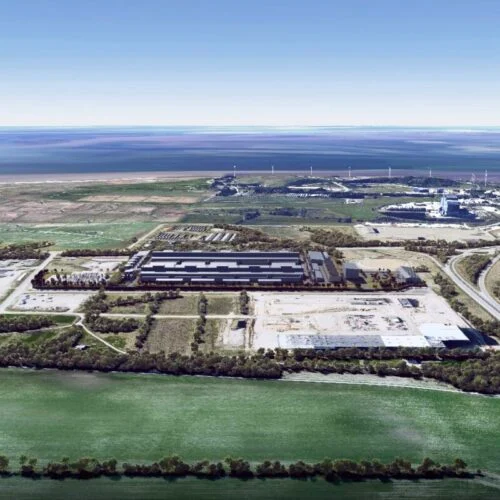Parcel delivery company DPD has announced that it will invest £330 million into seven new distribution centres designed to speed the rollout of its electric van fleet.
The facilities will all feature EV charging facilities and will be located in Crawley, Darlington, Cambridge, Bradford, Guildford, Milton Keynes and Sittingbourne. Each centre will cover 60,000 square feet and will support the processing of up to 80,000 parcels per day; the facilities are set to begin construction this year and next year, will all five due to be completed by early 2027.
In recent years, DPD has been increasingly working to expand the use of EVs for its parcel deliveries, with around 38.35% of the logistics giant’s fleet made up of EVs and a total of 38,858,039 deliveries powered by EVs so far this year; these electric deliveries are estimated to have saved 10,726 tonnes of CO2 emissions since the start of 2025.
Tim Jones, director of marketing, communications and sustainability at DPD Group UK called the announcement “a significant investment in our infrastructure”, adding that “these facilities will be served by increasing numbers of electric vehicles, making them more sustainable operations, and helping us move towards our net zero targets”.
With commercial vehicles making up around 10% of the UK’s total carbon emissions, a significant number of logistics and delivery fleet operators are looking towards EVs in order to reduce their environmental impact. At the beginning of this year, online retail giant Amazon placed what it claimed is the UK’s biggest order of electric heavy goods vehicles (eHGVs) as it works to meet its target of fully decarbonise its operations by the year 2040.
The firm has ordered over electric 140 Mercedes-Benz eActros 600 trucks and eight Volvo FM Battery Electric trucks, which will join the firm’s transportation network over the next 18 months.
Meanwhile, the West Midlands Innovation Programme recently supported the test of a small fleet of low-speed electric delivery vehicles on the University of Warwick campus, with the aim of exploring how these vehicles could be made legal for use on UK roads in order to reduce transport emissions across the UK.
Despite an enthusiasm to decarbonise commercial fleets, a lack of suitably powerful charging infrastructure on UK roads has proven to be a significant barrier to the decarbonisation of the transport industry.
A number of stakeholders have been working to develop infrastructure to solve this issue; in March of this year, Milence, a joint venture between Daimler Truck, the Traton Group and the Volvo Group, opened the UK’s first public charging hub for electric HGVs. The site, located in Immingham, features four high-performance chargers with an output of up to 400kW, supplying a total of eight charging bays.
Ageis Energy is also a key player in working to expand the reach of commercial EV charging, by rolling out a national network of clean refuelling hubs for electric HGVs and vans. This effort is supported partially by a major investment from Quinbrook Infrastructure Partners; together, the two firms are targeting a £100 million deployment of charging hubs over the next three years.






